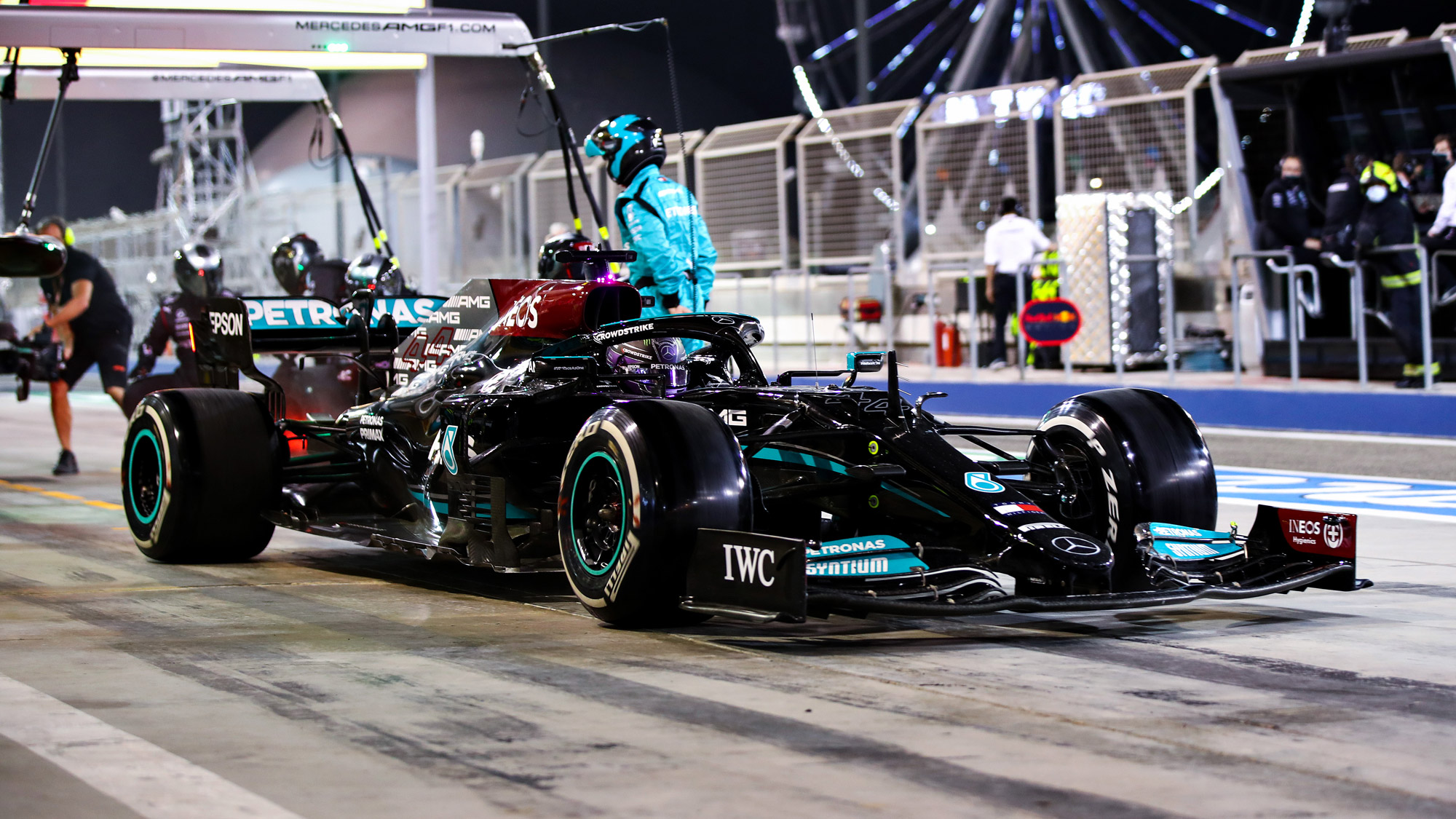Mercedes F1 Really Could Have Used Another Easy Year
2021 is likely to be an interesting year for Mercedes F1 and, by extension, the entire Formula 1 grid. The team didn't win the season-opening Bahrain Grand Prix in the typically dominant fashion that most of us probably expected. Merc's Lewis Hamilton got lucky when an illegal outside pass from Red Bull's Max Verstappen forced the Dutch driver to concede the position he gained. By the time he did, his tires no longer had the grip to make a run at Hamilton again.
The perception of many fans — and certainly Mercedes itself, given the way team boss Toto Wolff has been talking lately — is that the Silver Arrows team doesn't have the fastest car. During its recent run of utter dominance Mercedes has maintained a habit of playing underdog whenever things looked even a little sub-optimal—then going unchallenged for the championship. So Wolff's doomsaying should be taken with a grain of salt.
But it is clear from the early going that this season will probably be more of a slog than the previous two, and that Mercedes is facing challenges that it hasn't in a while. One of those is figuring out when to stop sinking time and money into this year's car and focus on the 2022 chassis.
Wolff says this has presented a "tricky decision" for his team, per Motorsport.com:
"It's going to be the same for all teams to balance resource that is going into the 2021 car and power unit, and the 2022 one," Wolff told Motorsport.com.
"It's clear that you can't afford to not perform in '21. But equally, the '22 regulations are going to be in place for quite some years. Once you start with a deficit, it's very difficult to catch up. So it will take a while for performance to converge.
"In that respect, these are tricky decisions that we are evaluating regularly."
The question of balancing investment in the current season's car versus next season's is one F1 teams face every year. However, as Wolff says, the ramifications of that decision are far more impactful on the eve of major changes to the technical regulations, like those looming in the distance for 2022. Fail to prepare for the forthcoming generation and you'll not only suffer in that first season under the new rules — you'll be spending years playing catch up.
We've seen teams bungle this crucial moment before. In 2008, BMW Sauber halted progress on its 2008 car to focus on 2009's immediately after it took a one-two finish in that year's Canadian Grand Prix. Unsurprisingly, the team fell in the pecking order throughout the remainder of the calendar. But all that work ahead of schedule didn't help BMW succeed in 2009; in fact, it fell further off the pace, and the German automaker announced halfway through the season that it was done with F1.
As Wolff said himself, his isn't the only team with 2022 on its mind. Every constructor is wrangling with the same question. The difference, in Mercedes' case, is that it probably didn't expect to have to worry too much about 2021 before entering winter testing. If this was another gimme year, Hamilton could waltz to an eighth title as the engineers poured all their attention into ensuring the Mercedes dynasty lasts well into F1's next era.
It doesn't seem like it's going to go down like that, though. And even if Hamilton, Wolff and company do top Red Bull in the end, it likely won't come without a bit of struggle. Welcome to how the rest of F1 lives, Mercedes.
